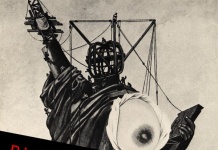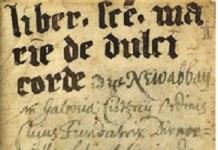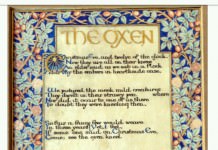Edwin George Morgan (April 27, 1920 – August 17, 2010), Scotland’s first official modern Scots Makar (the Caledonian Laureate), died recently leaving a huge financial legacy to the Scottish National Party and to various literary and cultural causes, and a far greater poetic legacy to modern Scottish literature. His achievement is impressive in its sheer size and persistence as much as anything else: This 2012 ebook update of Morgan’s 1996 collection comprises 858 pages of his poetry, commencing with an early poem, ‘Sculpture’, from 1939, as a prologue, and finishing with a personal ‘Epilogue’ by Morgan, composed in 1990. Reading it from cover to cover at one sitting is too much for almost anyone’s concentration, but there is a whole ocean of sunken treasures to dip into.
Morgan’s longevity and fertility owe a lot to his reinvention of himself from the repressed child of almost stereotypically dour and philistine Glasgow parents to the cosmopolitan and stridently gay poet of celebration who came out (in many senses) from his forties. ‘Is it true that we come alive/not once, but many times?’ he asked in ‘The Second Life,’ which gave the title to his key 1968 collection, wherein his experimental imagination really cut loose. Morgan’s devotion to sound poems, concrete poems, science fiction poems, nonsense poems, and craziness of all forms is part and parcel of his immense playfulness, which never precluded Scotland’s Christian Morgenstern from being completely serious, and indeed highly formal, when he wanted to, as in the 1984 ‘Sonnets from Scotland’. In fact, most of his work is intimately involved with form – just not in the conventional formalist sense.
I’ve already alluded elsewhere to Morgan’s immense importance in the Scottish nationalist movement, as a cultural exemplar, and as benefactor of the Scottish National Party. And Morgan stayed accessible to a wider public in Scotland in a way that few modem British poets have managed besides Philip Larkin, while continuing to engage with the wider themes – the epitome of a public poet. If Scotland does finally regain its independence, I vote for ‘The Loch Ness Monster’s Song’ as the new national anthem.

The enormous volume is a bit of a challenge for ereading software, and perhaps better read in Kindle than epub, though I haven’t had a chance to try it there. Montano Reader at least sometimes struggles with the huge file size, closing unexpectedly, especially when navigating through the chapter list, something that a cache clearance and force stop of the program will clear up . But Scots poet or not, no one could accuse Carcanet of being niggardly. Or sloppy. The ebook version catches Morgan’s quirks of layout and typography, essential for his concrete poetry, and incidentally, puts paid to any notion that ebooks can’t handle this kind of verse.
Edwin Morgan’s work, alongside Alasdair Gray’s prose and Hugh MacDiarmid’s contribution before him, is one reason why Scotland now is close to having a separate standing as a modern literary nation, as distinct from England as is Ireland. It’s hard to think of any post-war poet from south of the Border, with the possible exception of Geoffrey Hill, who has ranged so far, and accomplished so much. Anyone, from anywhere, who claims any knowledge of modern English-language poetry needs to know his work. ‘A great place and its people are not renewed lightly,’ he wrote. Just how great, you can read here.
TeleRead rating: 4.5


































